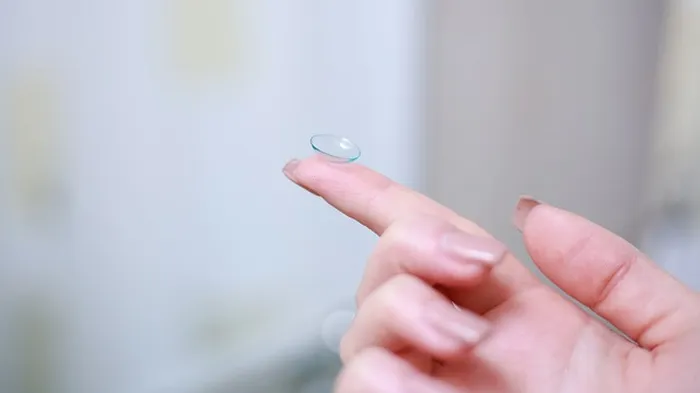We all know that probiotic or friendly bacteria reside in our digestive tract, assisting in nutrient absorption and keeping infectious microbes at bay. However, it may be a surprise to learn that there are bacteria not just living around our eyes, but on them as well. Moreover, those who wear contact lenses could be unwittingly inviting eye infections due to their choice of corrective eyewear.
Recent research into these microscopic eye inhabitants suggests that they react negatively to contact with contact lenses. It is proposed that the microorganism population of the eyes changes once in contact with lenses, making it almost the same as the bacteria that usually covers the skin on the eyelids. Although scientists are not yet sure whether this bacterial shift is caused by the pressure of the lens on the eye, or simply from the frequent touching of the eye area, it does seem to have a negative effect on eye health.
The resulting change in bacteria makes those who wear contact lenses more susceptible to corneal ulcers. These painful sores in the outer layer of the cornea may cause permanent vision damage and, in serious cases, even blindness. Interestingly, the prevalence of corneal ulcers increased with the widespread use of soft contact lenses in the 1970s. According to Dr. Jack Dodick, a common cause of corneal ulcers is the pathogen Pseudomonas. He emphasizes the importance of paying attention to eyelid and hand hygiene to help reduce such occurrences.
Protecting Your Eyes with Contacts
If you prefer to wear contact lenses over traditional glasses, there are ways to minimize and manage the health risks:
- Choose daily, disposable lenses: These limit the chances of transferring pathogenic bacteria to your eyes as they are replaced every day.
-
Always wash your hands: Ensuring proper hygiene by washing your hands thoroughly before touching your lenses or eyes is extremely important.
Signs of a Corneal Ulcer
Awareness of the symptoms is crucial when detecting the presence of a corneal ulcer. Should you experience any of the following, seek medical help immediately:
- Redness or swelling of the eye area
- Severe pain and soreness
- The feeling of a foreign object inside your eye
- Tearing or discharge, such as pus
- Blurred vision
- Sensitivity to light
- A white spot on the cornea that may be visible when looking in the mirror
The eyes are a vital yet delicate organ, and protecting them should always be a priority. Contact lenses, although convenient for many people as a corrective measure, come with risks. It is essential to maintain proper hygiene and care while using contacts to avoid potential infections and ensure the ongoing health of your eyes. It is also recommended to visit an optometrist regularly for check-ups, as they can identify any developing issues before they worsen.
In conclusion, wearing contact lenses certainly comes with its challenges and risks. However, by being aware of the potential dangers and ensuring that you follow recommended hygiene practices, you can enjoy the convenience and benefits of contact lenses without compromising the health of your eyes. The bottom line: keep your hands and lenses clean, dispose of them after every use, and pay attention to any changes in your eye health.



